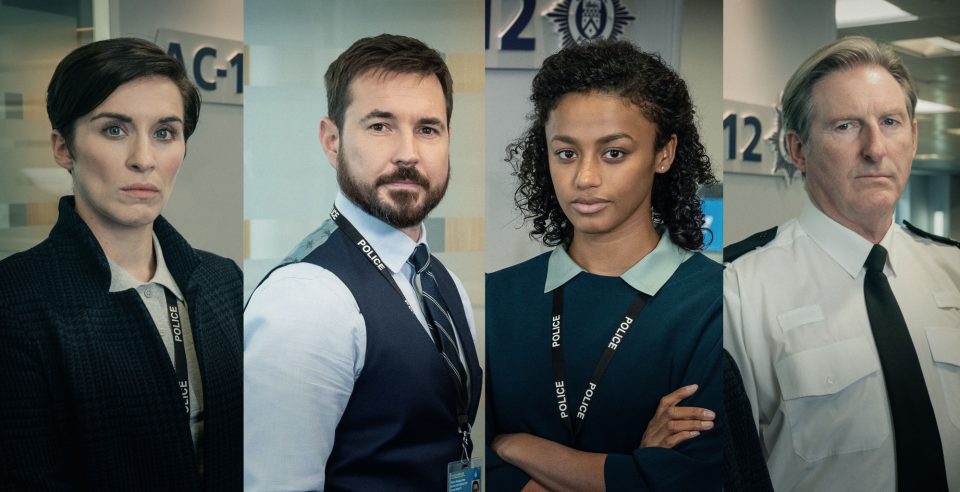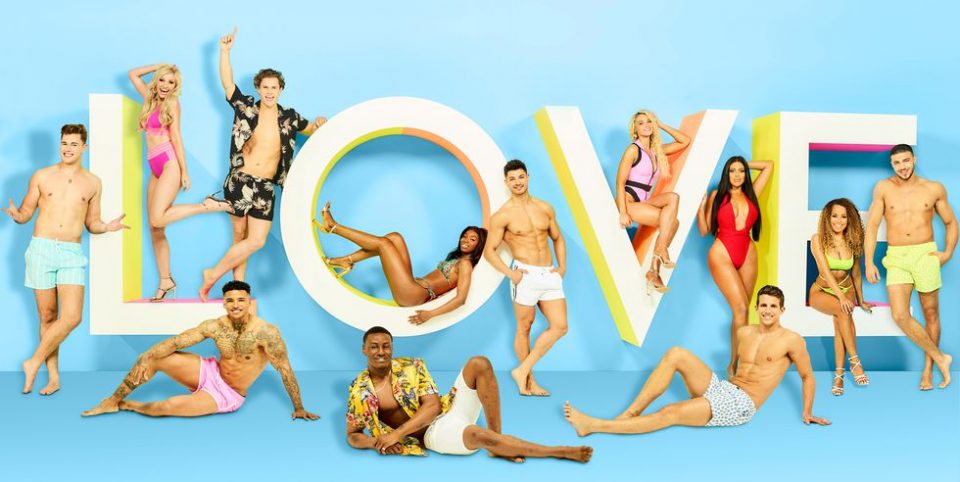Screenshot: Is Trump’s Facebook ban too hot to handle?

This week
**Media Moment of the Week: Brits love bent coppers
**Is Trump’s Facebook ban too hot to handle?
**ITV’s Summer of Love (Island)
Media Moment of the Week: Brits love bent coppers
Ok, so you might not have been the biggest fan of the Line of Duty season finale on Sunday. In fact, you might have been one of the many people to rant about it on Twitter. Nevertheless, the BBC’s bent copper showdown proved a massive TV hit.

An average of 12.8m people tuned in to find out the identity of criminal mastermind H — that’s also the most watched episode of any drama (excluding soaps) since records began in 2002. Who said appointment-to-view was dead?
Is Trump’s Facebook ban too hot to handle?
It’s been a long time coming, but Facebook’s oversight board has finally issued its ruling on whether Donald Trump should remain banned from the platform after he used the social media site to stir up the storming of the Capitol. It was a decision that did little to calm outrage on all sides of the political spectrum, but it’s been upheld.
Trump’s response was characteristically measured and reasonable. He branded his ongoing ban from Facebook (as well as Twitter and Youtube) a “total disgrace and an embarrassment”, planting the caps-locked blame firmly with “Radical Left Lunatics”. The former tweeter-in-chief won’t be silenced, however, as he unveiled a new website to broadcast his opinions to the world. Think Dominic Cummings’ blog but written by an eight-year-old.
What the latest decision really shows, however, is how much of a political hot potato Trump’s social media presence is — and how unwilling Facebook is to handle it. In January Mark Zuckerberg announced that Trump was banned from the platform indefinitely, before handing the matter over to the oversight board — an external panel of experts charged with reviewing moderation decisions. While the board upheld the decision, it said Facebook should make a final verdict in six months on whether to ban Trump permanently. The ball, therefore, is very much back in Facebook’s court.
Critics of Facebook have previously raised concerns about the oversight board, which is made up of 20 external experts including former Guardian editor Alan Rusbridger, Nobel laureate Tawakkol Karman and former Danish Prime Minister Helle Thorning-Schmidt. The criticism is largely centred on the fact that it is funded by a $130m trust set up by Facebook itself and, while it can offer recommendations to the company, it has no real power. For its part, the board this week attacked Facebook for imposing a “vague, standardless penalty” on Trump and accused the company of shirking its responsibilities.
In reality, though, no one comes out of this well. The oversight board limped through its first major test with a half-hearted decision, only raising more questions about its independence and efficacy, while Facebook’s equivocating shows just how unable (and unwilling) it is to self-regulate. Of course, content moderation is no easy task. What’s more, Facebook is being attacked both by Republicans, who are crying foul over breaches of free speech, and Democrats, who accuse the social media platform of failing to clamp down on misinformation.
Still, though, Facebook’s inability to act decisively will only stir up more resentment and add fuel to the fire of calls for regulation. Matters such as the Trump ban are simply too hot to handle and, for all its lofty claims about the oversight board, there remains neither a carrot nor a stick to make Facebook tidy up its act. The reality of the matter is that the company is unlikely to take action unless its business model — and the opaque algorithms that underpin it — is under threat.
ITV’s Summer of Love (Island)

While most Brits eagerly await a verdict on holidays abroad, ITV’s summer plans look rather different. The broadcaster this week pinned its hopes on a “cautiously optimistic” recovery from a pandemic-induced advertising slump, eyeing up the return of Love Island and the delayed Euros football tournament. ITV said ad revenue had rebounded 68 per cent this month and anticipated a boost of between 85 per cent and 90 per cent by June (albeit from very low comparables last year).
On the surface, this is very welcome news for the broadcaster. It has been hit by a double whammy of a crashing advertising market and delays to production, and a recovery is well overdue. It also highlights the resilience of TV advertising in the modern streaming landscape (something I wrote about last week in relation to GB News), as well hopes that the pandemic boom in viewing figures may have rekindled confidence in traditional TV.
This is not to say, however, that it’s all plain sailing for ITV, which is battling a shake-up of the media landscape amid the rise of online rivals such as Netflix. It has already unveiled a new division dedicated to streaming in a bid to keep abreast of changing viewing habits alongside the rollout of Britbox which, while underwhelming in the UK, could prove lucrative abroad. Under chief executive Carolyn McCall it has also been ramping up its production capabilities through ITV Studios, which makes shows including Line of Duty.
In an age where content is king, and rivals will pay big bucks for the crown, these changes could be crucial to ITV’s future success. But all eyes will also be on McCall for the next major move. ITV is reportedly in talks over a potential stake in BT Sport, a move that would bring Champions League free-to-air and create a major advertising cash cow. More adventurously, its newly formed venture capital arm has been making bets outside of media, including in geolocation platform what3words and menswear brand Spoke. With a potential Summer of Love on the horizon, things are looking up for ITV. But securing its long-term success will rely on escaping the TV advertising cycle, and it might just be time to get creative.
The algorithm recommends
- Uber booked a $600m hit in the first quarter as a result of the Supreme Court ruling over drivers’ rights. It’s an eye-watering sum, and there’s more to come. The ride-hailing giant will be worried.
- Ofcom has ruled that BBC Sounds does not pose competition concern in the radio market, marking a blow for long-time nemesis Rupert Murdoch.
- Apple and Epic kicked off their mammoth court battle this month, with some eyebrow-raising details already emerging in discovery. If you’re not up to speed with the row, here’s a good explainer.
Got a story? Drop me a line at james.warrington@cityam.com or on Twitter